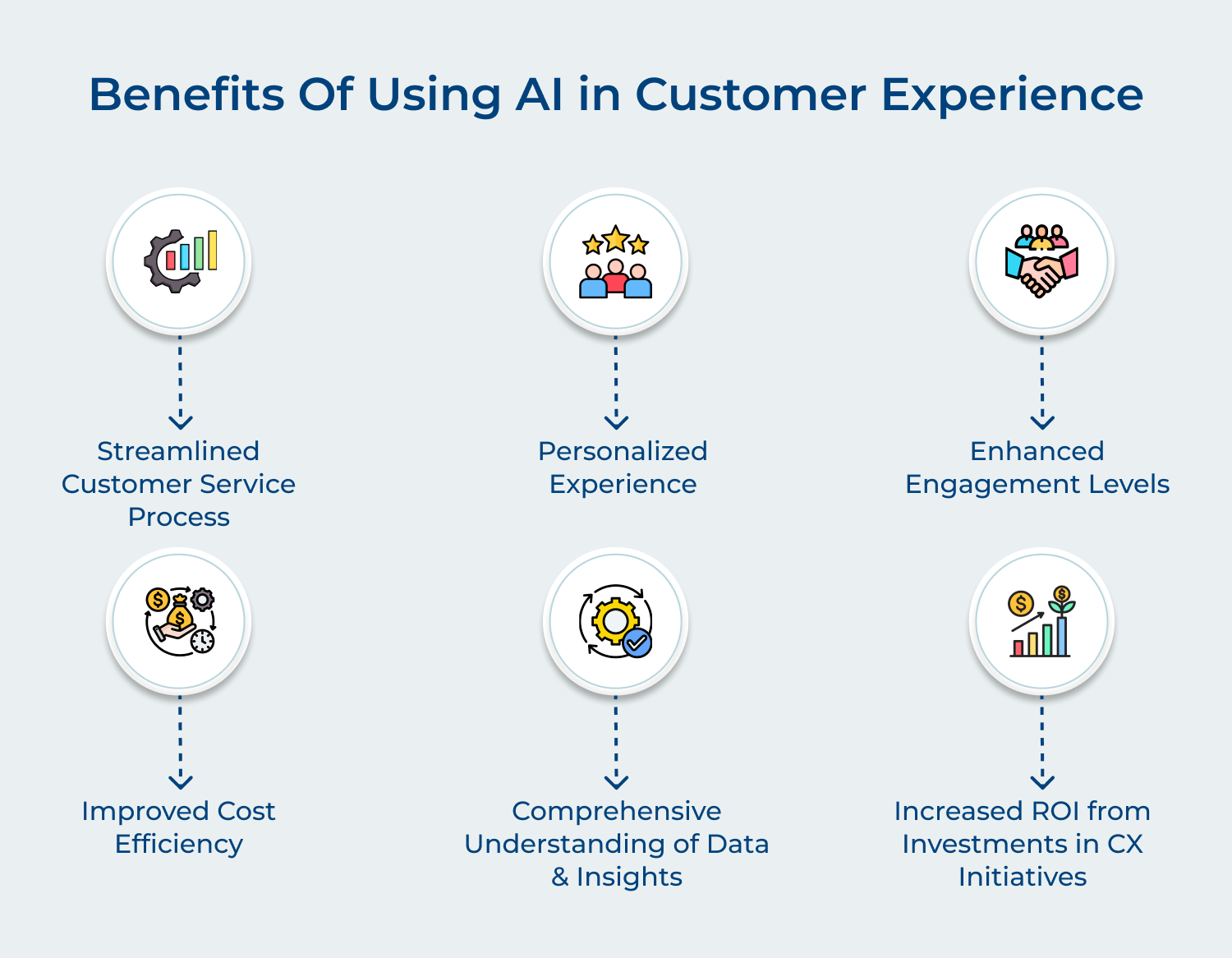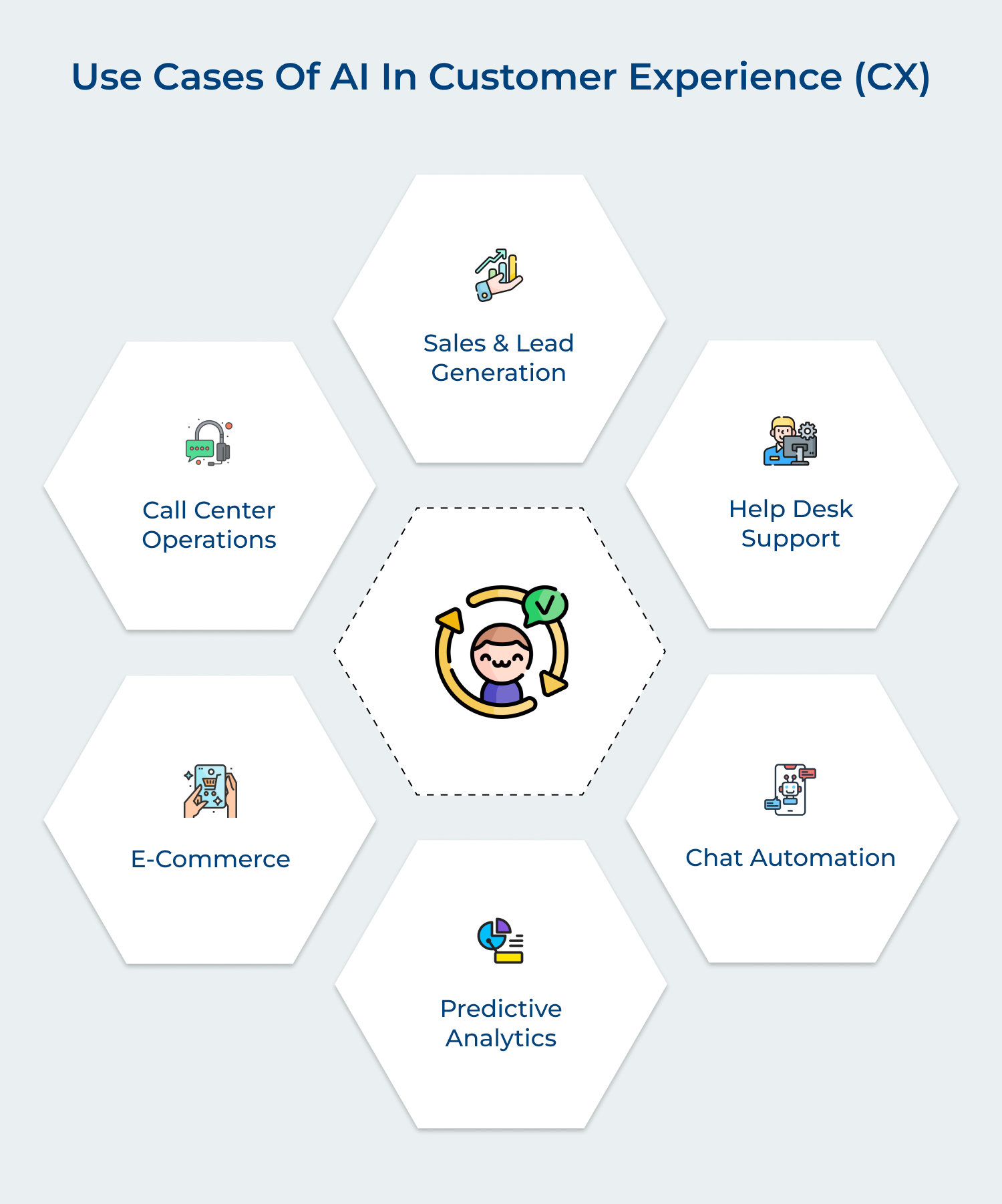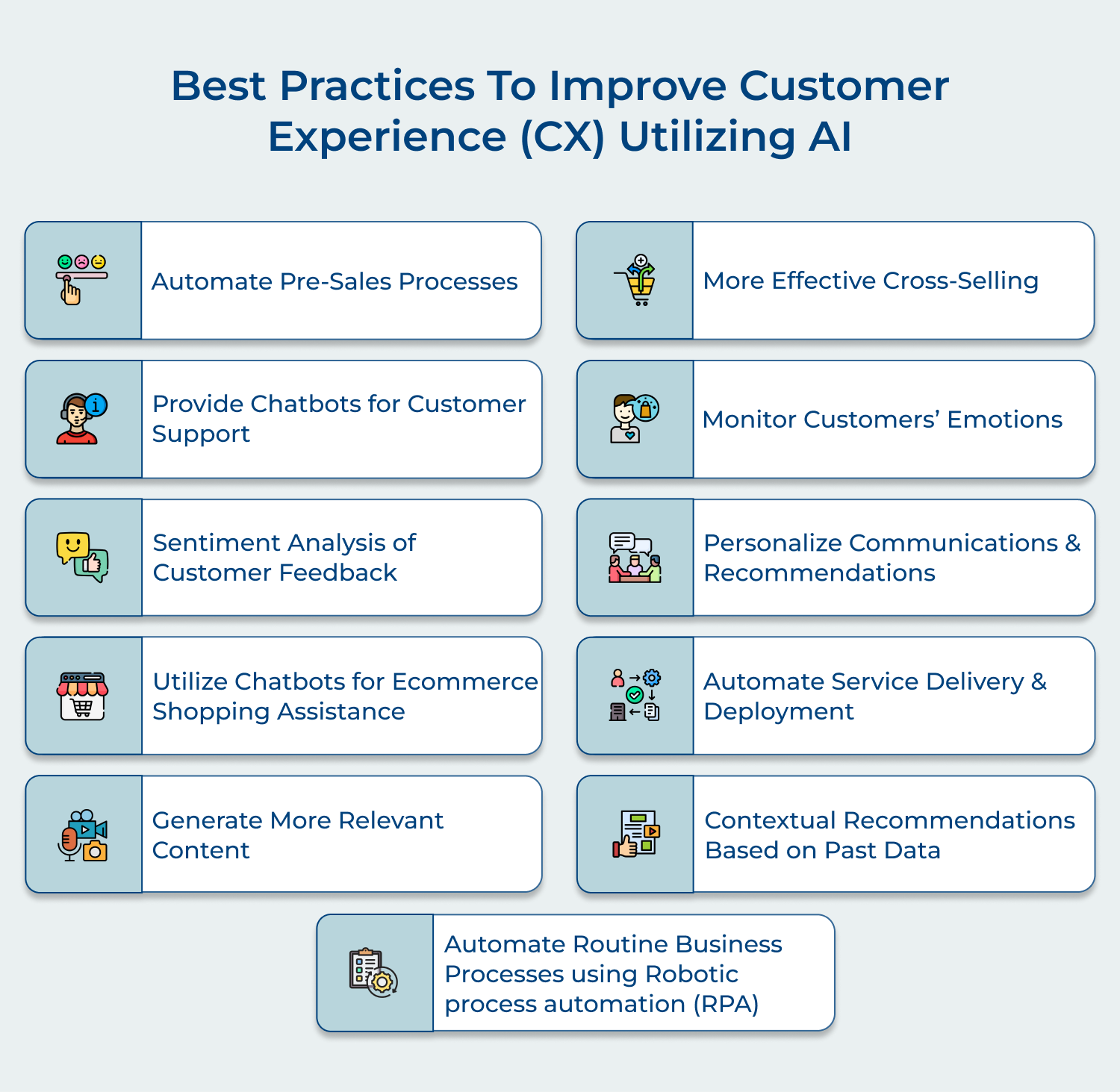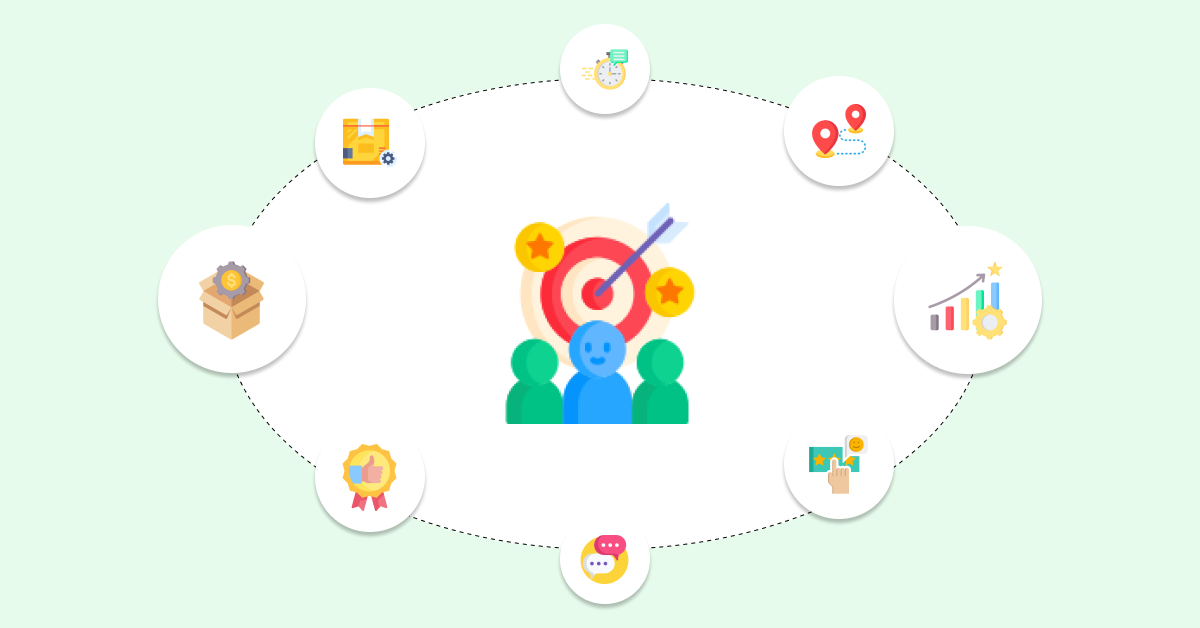1. Automate Pre-Sales Processes
One way of using AI to enhance Customer Experience is by automating the pre-sales process. Using AI for lead qualification is a great way to improve the quality and quantity of leads generated. It also enables businesses to segment leads more accurately leading to more efficient sales cycles and higher conversion rates.
Automation also helps in managing customer requests like registration forms, product demos, and more. It helps to build a connection with customers at an early stage of their journey.
2. Provide Chatbots for Customer Support
By introducing automated chat agents, companies can reduce the need for human interaction while still providing excellent service by using AI tools such as Natural Language Processing (NLP). It allows customers to get help on their terms without having to wait in line or talk with someone directly.
Onboard Chatbot Agents powered by AI can also engage in conversations with customers on a wide variety of topics and respond quickly as well as accurately to inquiries about products, troubleshooting, billing issues, etc.
3. Sentiment Analysis of Customer Feedback
One important use of AI technology is sentiment analysis, which provides insights into how customers feel about a brand or product. By analyzing customer feedback, sentiment analysis systems can detect patterns that suggest issues or opportunities that need attention.
The data can then be used to inform CX strategies, allowing for better decisions regarding customer outreach and engagement efforts. The ability to process large amounts of unstructured data quickly also allows businesses to identify weak points in their customer service program and make improvements quickly before the issue escalates.
4. Utilize Chatbots for E-commerce Shopping Assistance
Last but not least is chatbot technology which enables shoppers to ask questions about products or services while still browsing your website, expanding opportunities for communication between them and your brand team members in real-time.
Chatbot assistants are capable of providing product recommendations tailored just for them taking into account past behaviors, and highly optimizing the shopping experience while both creating valuable data required by companies to create profitable strategies.
5. Generate More Relevant Content
AI-powered content tools are becoming increasingly popular in CX initiatives as they help businesses generate more relevant content based on user behavior, preferences and interests.
For example, Amazon’s recommendation engine has become extremely popular, using data points from previous purchases to suggest related items that may be of interest to customers.
6. More Effective Cross-Selling
By analyzing ongoing trends in user behavior, companies can tailor their marketing campaigns for specific products ensuring relevance that recognizes customers’ current needs and anticipates future ones more effectively than ever before.
For example, Amazon studied millions of past purchases and search queries from its users to recommend items when someone purchases from another store category – proving very effective for cross-selling opportunities!
7. Monitor Customer’s Emotions
AI-based sentiment analysis models are being used by companies to monitor customer’s emotions and tailor appropriate responses that result in enhanced levels of customer satisfaction across all channels of engagement (e.g., websites, social media, email campaigns, etc.). Knowing how customers feel at any given moment allows a business to deliver personalized attention that could result in repeat business or increased loyalty over time.
8. Personalize Communications & Recommendations
By leveraging data on customer behavior history with predictive analytics tools such as machine learning algorithms, businesses can send timely offers that are most likely to appeal to customers’ tastes via automated email campaigns or other digital marketing channels—and they don’t even have to lift a finger.
Dynamic product recommendations powered by AI are constantly improving relative performance based on new levels of customer interaction over time—ensuring maximum relevance for any storefront or online store catalog alike!
9. Automate Service Delivery & Deployment
Customer expectations are evolving when it comes to speed of delivery and service deployment schedules; businesses now have access to sophisticated automation technologies that make the process smoother than ever before.
Through automation platforms like Robotic Process Automation (RPA) – which is powered by Artificial Intelligence – companies can automate mundane tasks involved throughout the order fulfillment process – making operations smoother while giving employees more time back in their day!
10. Contextual Recommendations Based on Past Data
Another strategy companies use is analyzing past data collected from customers to make personalized product recommendations in real time. AI algorithms automatically sift through large amounts of consumer data rapidly showing up offers related to previous purchase history or recommending complementary items typically purchased by similar buyers.
Machine learning algorithms offer even more advanced insights into consumer behavior which can be used by marketers for targeted campaigns. This type of contextual recommendation helps companies build loyalty among existing customers while expanding business opportunities for new ones.
11. Automate Routine Business Processes using Robotic Process Automation (RPA)
Robotic process automation (RPA) enables companies to automate routine tasks related to CX activities, such as responding to inquiries efficiently and effectively across multiple channels or reliably delivering requested documents without manual intervention.
Automating repetitive tasks allows businesses to reduce manpower costs while speeding up workflows and improving accuracy – things that have always been desired by customers but often not achieved due to cost savings constraints on companies’ bottom line.
RPA platforms may now be able to identify specific problems within a customer’s inquiry or situation and then suggest appropriate remedies quickly which would not only increase levels of efficiency but would also allow employees more time to focus on more complex problems thus leading eventually towards an improved overall customer satisfaction level/experience.
The Challenges of Implementing AI for Customer Experience (CX)
To keep up with the changing customer needs and technological advancements, there is an increasing focus on AI technologies. Implementing AI into CX can present several challenges.
- Collecting relevant and quality data: Understanding customer behavior and needs requires data from multiple sources. Capturing and refining the data for accurate insights presents its challenge.
- Ensuring system compatibility: Integrating AI components into existing systems to ensure a seamless experience can be complex, requiring dedicated resources and maintenance efforts.
- Promoting automation strategies: Utilizing automation has many benefits including cost savings. It also introduces a new set of challenges as some tasks may still need human creativity or judgment before becoming automated processes.
- Developing scalable measurements: Once an AI system has been implemented, companies have to measure its success which adds another level of complexity due to scales of implementation across multiple functionalities within an organization.
- Ensuring security compliance: As companies deploy more sophisticated tools such as predictive analytics, security compliance becomes even more important for protection against identity fraud or cyber threats.
- Training employees on new technologies: Training employees on how to deal with new technologies is no longer optional but increasingly necessary if you want your team to work successfully.
Transform Your CX with Omni 24’ AI-Enabled Omnichannel Platform
Businesses need a robust and integrated platform that can handle multiple communication channels, such as email, chat, social media, voice, and SMS to meet these expectations. The Omni24 AI-enabled Omnichannel Platform is designed to do just that.
Artificial intelligence is leading the way towards enhanced CX through its ability to automate tedious tasks while providing data insights necessary for meaningful actions in real-time. The opportunities presented by exploiting the capabilities of AI should not be underestimated – it could just be what you need after all!







